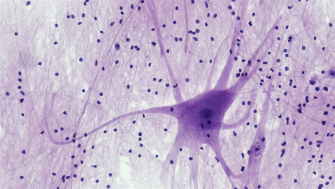What is alectinib (Alecensa) and why is the latest news a positive step for lung cancer patients?
Last updated: 01 November 2019

You can legally access new medicines, even if they are not approved in your country.
Learn howHow effective is alectinib (Alecensa)? The latest news and updates

Just recently, on the 12th October, the European Committee for Medicinal Products for Human Use (CHMP) recommended the extension of the approval of a medicine called alectinib (Alecensa) as a first-line treatment of adults with ALK-positive, advanced non-small cell lung cancer (NSCLC). EMA marketing authorisation will soon follow.
Although this recommendation is promising for lung cancer patients, alectinib may not yet be available to all NSCLC patients at the same time. There are multiple challenges that cause delays in availability. However, it is possible for patients to import medicines on a ‘named patient’ basis — provided they have the right guidance and are legally compliant. If you’re interested in sourcing a medicine that’s not yet available in your country, you’ll find information on our home page about how we can assist. Our team delivers not yet approved medicines from around the world on daily basis, with service that’s highly rated by doctors and patients.
So what does the recommendation mean, and why is it significant for patients with lung cancer worldwide?
About the latest progress on Alecensa (alectinib)
Alectinib is a prescription medicine used to treat people with advanced non-small cell lung cancer (NSCLC), and whose type of NSCLC is caused by an abnormal anaplastic lymphoma kinase (ALK) gene.
At the moment it’s only approved for patients who have already taken the medicine crizotinib, but their NSCLC has worsened, or who cannot tolerate crizotinib.
Crizotinib is currently considered by many as the number one medicine of choice for treating patients with this type of lung cancer, as it has shown the best results to date. However the fact that alectinib is being recommended as a frontline or ‘first-line’ treatment reflects the fact that it has shown better results in responses than crizotinib in untreated patients. This is potentially great news.
Quick medical explanation: ‘First-line’ means that a medicine can be given to a patient as a very first treatment option; ‘second-line’ (think “second in line”) means that the medicine is an option only after a patient has tried the first treatment, third-line after the first two medicines, and so on.
What does this recommendation mean for patients?
The EMA now has about 60 days to pick this up and prepare all the necessary documentation and issue the marketing authorisation of Alecensa (alectinib) as a first-line treatment for ALK-positive NSCLC.
The great news for patients outside of the EU is that regulatory agencies in other countries (e.g. The FDA in the US, the TGA in Australia) will probably follow suit and issue the same approval in the coming months. This is often the standard approach for medicine approvals by regulatory agencies.
As a global patient platform for newly-approved medicines, everyone.org is tracking the progress of Alectinib closely, so we'll update our patient community as soon as there's news.
For more information about alectinib (Alecensa) including its efficacy (effectiveness), head to our product page.




